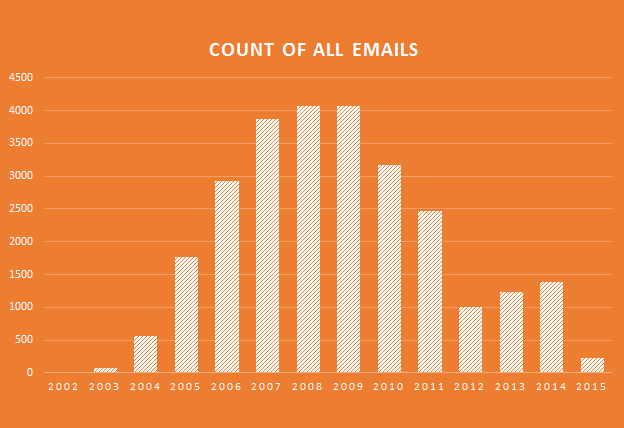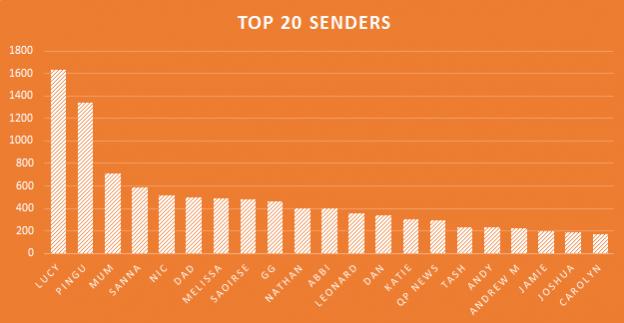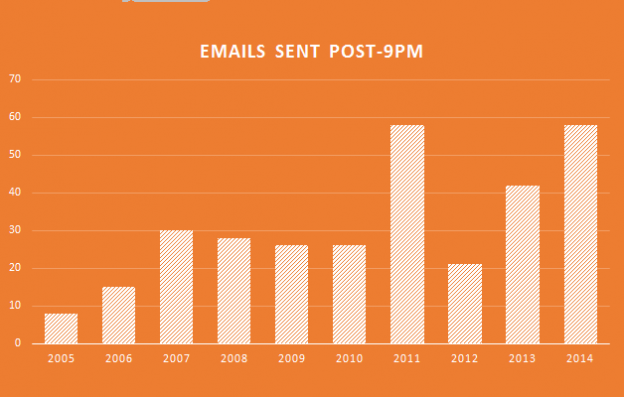Email’s not what it used to be.
Having decided it was Very Important to stay up all night migrating 13ish years of messages, chucking them into a few graphs seemed the logical conclusion:

All saved emails, sent and received (includes uni, excludes work)
The early years are spotty. I didn’t get my own email address until 2002, and this was in the era of dial-up modems and Hotmail storage quotas. I only have 3 emails from that year, and 2003 isn’t much better.
Then things start to climb quickly. By 2007 I’m at almost 4000 messages, or about 77 per week. These are mostly emails from real people: I didn’t keep the spam, the newsletters or the alerts. Many are short chatty messages from Babble – that group of us who often emailed back and forth before things like that migrated to Facebook comments and WhatsApp conversations. Indeed, a full 6 entries in the top 20 league of all-time email senders are from Babble, albeit pipped to the post by Lucy:

Top 20 senders of all time. You lose out if you changed your name halfway through (sorry, Abbi)
These days, most of the people I talk to most often barely get a look-in on these charts. It’s not surprising. There’s a big hit to my email counts at the end of university because (at least back in 2010) a lot of Cambridge still functioned on email, while the rest of the world was moving on. 2012 is catastrophic: email falling by 75% from its peak. Combine a plethora of new ways to communicate, a full-time job and a smartphone, and email looks like it’s down for the count.
Except… not quite. Every subsequent year has seen a rise in the total message count. There’s something nice about email. It takes time and commitment to write a message, and the inbox has a comfortingly archaic feeling of relative peace and privacy. Sure, many messages are of the “shall we Skype?” or “Your Amazon order is confirmed” variety, but others are long-form catch-ups and conversations.
And increasingly, like writing this blog, they’re happening later than might be wise:

Go to bed?
Abigail Osbiston, Simon T Abernethy liked this post.









